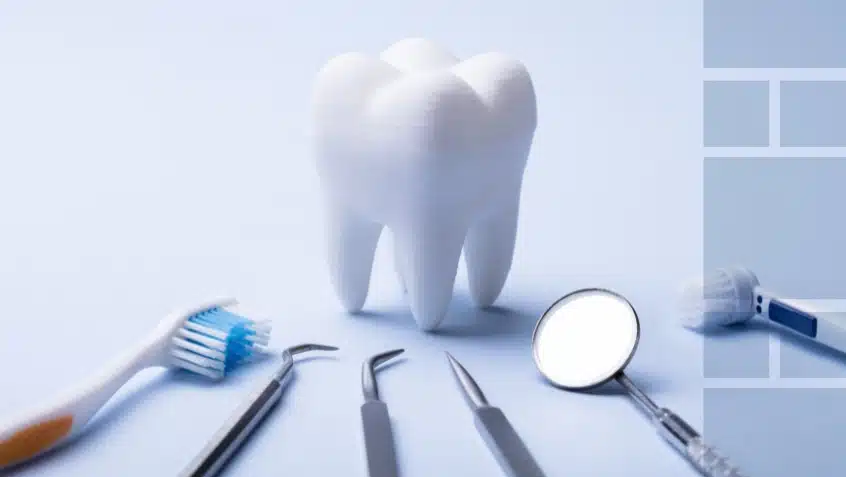Join Us Live for a Discussion on Medicare, Democracy, and the Future of Health Care

While Medicare dental coverage remains extremely limited, the 2023 and 2024 Medicare Physician Fee Schedule (PFS) final rules expand access in certain situations. A new KFF issue brief offers context for these updates and describes how they may impact people with Medicare.
The Medicare statute is generally read as excluding from coverage all services “in connection with the care, treatment, filling, removal, or replacement of teeth or structures directly supporting teeth.” However, the law creates an exception, allowing Medicare to pay for dental services in certain limited situations, including trauma and where the removal of a tooth is required in order for successful treatment of a cancerous tumor in the jaw, and to cover care in inpatient settings “if the individual, because of his underlying medical condition and clinical status or because of the severity of the dental procedure, requires hospitalization in connection with the provision of such services.”
Historically, the Centers for Medicare & Medicaid Services (CMS) has narrowly interpreted this language, only covering medically necessary dental treatment in highly specific instances. Medicare Rights and other advocates have long urged a different approach, asserting the statute permits the agency to go further, and that not doing so unnecessarily restricted beneficiary access to care.
In response to these and other similar concerns, in the 2023 and 2024 PFS rules, CMS clarified and expanded Medicare coverage of medically necessary dental treatment in the following ways:
The 2023 final rule outlined the criteria for Medicare Part A and B coverage of medically necessary dental services. Medicare will now pay for dental services “that are inextricably linked to, and substantially related and integral to the clinical success of, certain other covered medical services” in both inpatient and outpatient settings. In other words, when the dental treatment is linked to the clinical success of another, Medicare-covered, service. The services must be integrated, “meaning medical and dental professionals must coordinate care.” CMS also finalized a change allowing Medicare to pay for “ancillary services that are critical to the success of dental services, such as X-rays, administration of anesthesia, and use of an operating room.”
The 2023 and 2024 final rules defined new clinical scenarios in which Medicare can pay for dental services. Using this coverage criteria, in the 2023 final rule CMS codified a wider range of circumstances in which Medicare can pay for medically necessary dental services, such as prior to organ transplants, cardiac valve replacements, and head and neck cancer treatments. The 2024 final rule enumerated additional expansions, ensuring Medicare can address oral health complications that occur after the treatment of head and neck cancers, and for people undergoing certain cancer-related chemotherapy, radiation, and cell therapies. CMS also signaled openness to other instances in which medically necessary dental coverage may be required, noting plans to use the annual PFS rulemaking process to socialize those proposals.
These reforms will help mitigate some of the barriers to dental care that people with Medicare can face, improving health outcomes and quality of life for many. According to KFF, “CMS estimates that approximately 190,000 additional dental services could be covered by Medicare prior to organ transplants, cardiac valve replacement, valvuloplasty procedures beginning in 2023” and “an additional 155,000 beneficiaries” might receive dental services relating to cancer treatments under the coverage that starts next year.
Medicare Rights applauds these policies, which take vital steps toward integrating oral health into whole-body health. While we remain committed to expanding medically necessary dental coverage, we also recognize the need to embed more broadly available services into the program. Accordingly, we will also continue to advocate for the addition of a comprehensive dental benefit to Medicare Part B. Absent such a change, millions of older adults and people with disabilities will continue to lack access to affordable, essential dental services. The evidence is clear that such care is critically important to maintaining overall health, and that Medicare’s coverage gap exacerbates racial, geographic, and disability-related health and economic disparities and inequities. We urge Congress and the administration to work together to bolster core Medicare oral health coverage, without delay.
Read the KFF report, “Recent Changes to Medicare Coverage of Dental Services from the 2023 and 2024 Medicare Physician Fee Schedule Final Rules.”
Read more from Medicare Rights about the 2023 and 2024 final rules.
Show Comments
We welcome thoughtful, respectful discussion on our website. To maintain a safe and constructive environment, comments that include profanity or violent, threatening language will be hidden. We may ban commentors who repeatedly cross these guidelines.
Help Us Protect & Strengthen Medicare
Donate today and make a lasting impact
More than 67 million people rely on Medicare—but many still face barriers to the care they need. With your support, we provide free, unbiased help to people navigating Medicare and work across the country with federal and state advocates to protect Medicare’s future and address the needs of those it serves.
The Latest
Most Read
Add Medicare to Your Inbox
Sign up to receive Medicare news, policy developments, and other useful updates from the Medicare Rights.
View this profile on InstagramMedicare Rights Center (@medicarerights) • Instagram photos and videos









